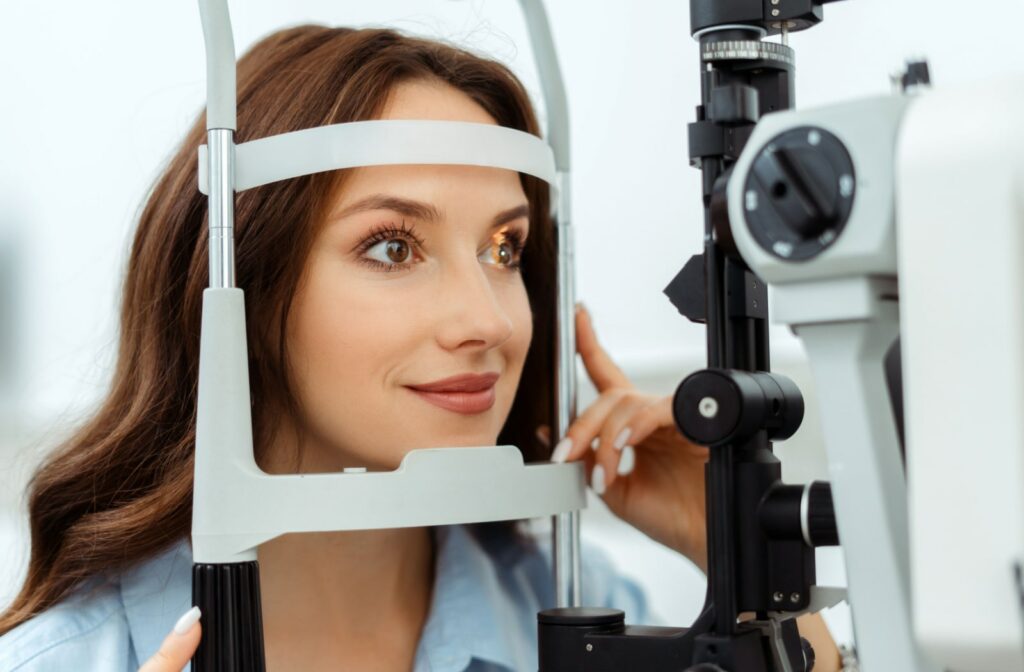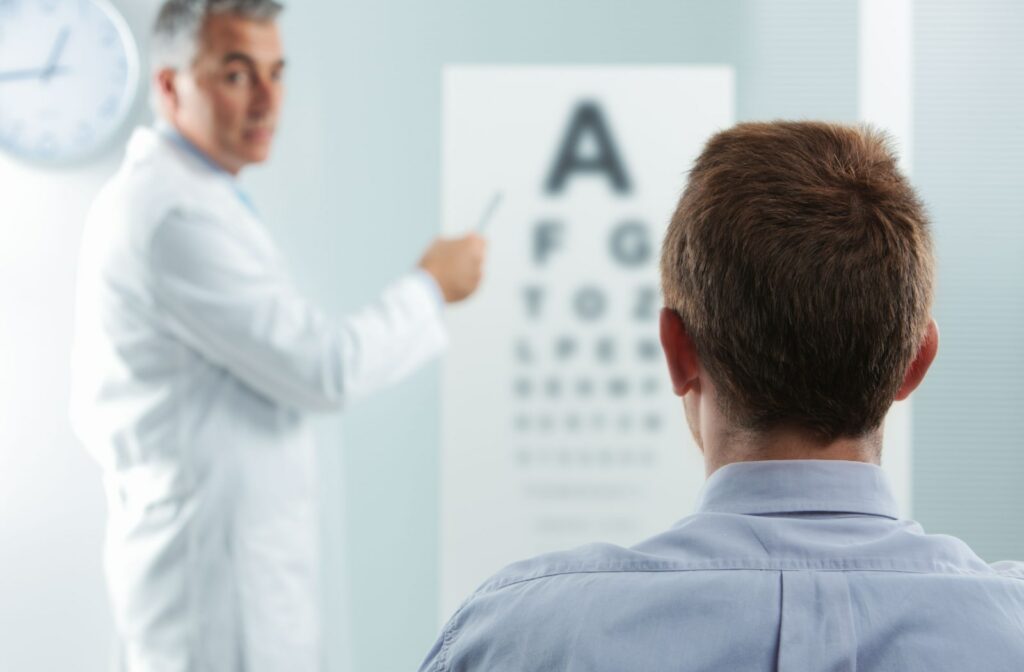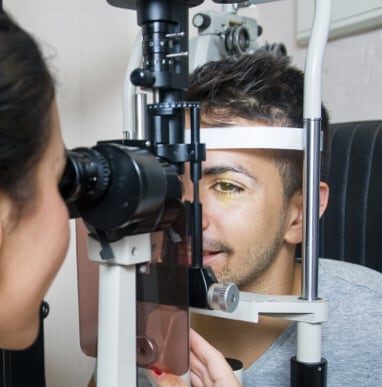Taking care of your eyes is extremely important. It isn’t just about getting a new prescription—regular eye exams let an optometrist check for all kinds of potential eye conditions and problems. So, how often should you have an eye exam?
You should visit your optometrist at least once a year. But if you have any previously diagnosed conditions or are noticing any problems with your vision, it can be helpful to go more often.
Why Are Eye Exams So Important?
Even though checking your vision is a big part of an eye exam, it’s not the only thing being done during your appointment. Your optometrist is checking for all kinds of potential problems that can affect you and your health.
Your eyes are extremely complex and are connected closely with the brain. They have blood vessels and entire systems that perform various functions. Think of it like an engine in a car—plenty of smaller systems are all working together to achieve a common goal. Your optometrist is like the mechanic—they check all the systems and parts to make sure things are going smoothly.

What Diseases Can Be Detected During an Eye Exam?
So, what exactly are they looking for? During the appointment, your optometrist is checking for several potential eye conditions, including:
- Glaucoma
- Age-related macular degeneration
- Cataracts
- Diabetic retinopathy
These conditions can all cause long-term damage to your vision if left unaddressed, so it’s crucial to regularly see your optometrist to get an early diagnosis.
Glaucoma
Glaucoma is a group of progressive eye conditions that can begin to damage the optic nerve. It’s associated with an increase in intraocular pressure and often starts to develop without any noticeable symptoms. Because of this, glaucoma is often called “the silent thief of sight.”
Early detection of glaucoma is key. Once it begins to damage your optic nerve, you’re at risk of losing your vision, and this damage is permanent. The earlier it’s detected, the earlier it can be addressed.
Age-Related Macular Degeneration
Remember: your eye has plenty of small parts and systems that let the visual system do its job. One of these parts is the retina, the light-sensitive tissue at the back of the eye. One smaller piece of the retina is called the “macula,” and it’s responsible for clear central vision.
Sometimes, as you get older, this macular starts to wear down, and focusing on objects in the center of your vision becomes harder. This is called “age-related macular degeneration.”
Cataracts
In the front of your eye, you have a natural lens, just like the lens on a camera. Sometimes, with age, little protein strands in the eye can break apart and clump together, fogging up this lens. This is a cataract.
They often cause blurry vision and light sensitivity but can be treated through cataract surgery.
Diabetic Retinopathy
If you have diabetes, regular eye exams become even more important due to a condition called “diabetic retinopathy.” Diabetes affects the tiny blood vessels in the back of the eye near the retina. Over time, these blood vessels can weaken or even burst, leaking fluids into the eye and damaging your vision.
This damage is permanent, making it essential to regularly schedule diabetic eye exams to monitor how the condition is affecting your eyes.
What to Expect from an Eye Exam
Now that you know what to look for, there’s one question left: what should you expect from an eye exam?
During your appointment, your optometrist will go through a series of tests to check the different parts of your eye. We’ll be testing your:
- Visual acuity (how clear and sharp your vision is at different distances)
- Level of refractive error to determine if you need new eyeglasses or contacts
- Intraocular pressure
- Retinal health
- Eye tissue
- Eye alignment
- Peripheral vision
This lets us comprehensively understand your eyes and catch any potential issues early on!
You should be scheduling eye exams at least once a year. However, if you have any previously diagnosed conditions or are noticing any problems with your vision, book an appointment as soon as possible. With most eye conditions, early intervention can make a significant impact.
Book Your Next Eye Exam in Peoria & Washington
Regular eye exams are one of the most important ways to keep your vision clear and your eyes healthy. So, if you need to schedule an eye exam, book a visit with our team here at Vision Care Center. We’re here to help check for any irregularities and treat any potential problems, so book an appointment with our team today.












